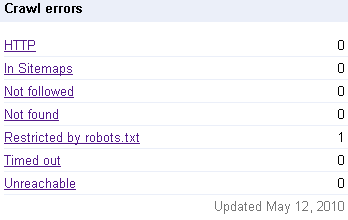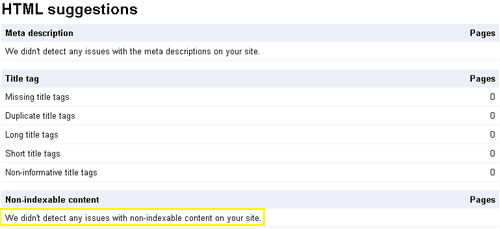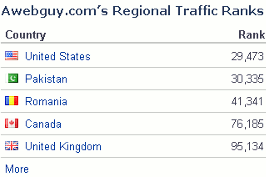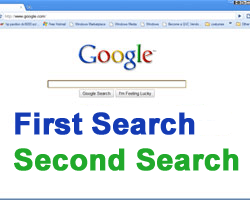
I often find myself visiting with everything from small emerging SEO clients to mid-market SEO clients and large enterprise SEO clients. A commonality I find is that each of them have a hard time justifying the initial cost of SEO services, but I want to help explain how they are able to do so. In each instance, there is a clear understanding that they need SEO. After all, it is what makes them visible to more people searching to buy what they sell. Let’s not get silly and start questioning whether SEO works or not.
We surely all know that SEO provides an excellent return on investment when it is done just right. If you don’t know this already, there are a squillion solid case studies to back it up. If you are reading this, you know very well that it works. I wrote this and SEO’d it for you, and now you are here to read it, so let’s not be coy. You want more people to see your brand and your value proposition, and this is something that enterprise search engine optimizers do well. The challenge lies in how to justify the stroke of a pen that puts your money into the SEO’s bank account. So let’s look at that and consider how everything from the enterprise SEO service level all the way down to a “let’s fail fast and get it over with” marketing budget is justified.
What is Enterprise SEO?
Let us first look at the term, enterprise SEO. What does it really mean? Somehow the word enterprise has been used to define an elite level of businesses that spend a lot of money on marketing and have thousands of employees in huge skyscrapers. Let’s put that definition of enterprise to bed right now, and start looking at this a bit differently. I like the definition provided by Princeton University which states as follows:
Using this definition, it seems more obvious how we can categorize SEO and create a description of “enterprise SEO” as opposed to other SEO … call it “hobby SEO” or maybe “wasteful SEO”. This is because, as the definition describes, it is a “purposeful or industrious undertaking”, which is too often not the case at all with SEO. I often witness huge errors when the initial cost of SEO overrides the value of good SEO. I mean, let’s consider this: If you are shopping around for search engine optimization services, are you likely to look for the SEO with the highest cost, or the one with the lowest cost? If you do not recognize this as an absurd question, you should. If low cost is the biggest deciding factor, you have it all wrong. Instead, I want you to imagine seeking the search engine optimizer with a better strategy and a bid that you can justify to yourself, your company board members, your wife, or whomever you answer to.
Tragically, the initial cost of SEO is a big factor to a lot of people, while the “effort or boldness” part of the enterprise definition is devalued due to fear of loss overriding expectation of gain … even when it is substantiated with logic. I stand behind what I said in the article “Fear Affects Success in Marketing More Than Logic“, because I know from experience that it is true.
Common View of Enterprise SEO
Considering a common view of enterprise SEO, it is easy to imagine a team of bright and creative marketers gathered in a meeting room providing consultation to the big company’s internal SEO staff. They craft plans based on a lot of facts and figures, they meet repeatedly to define objectives, they strategize at great length, and they carve out a huge piece of marketing budget justified by real-world estimates based on known variables. Then it is time for implementation on a grand scale to put all of those great plans into profit-producing action.
Enterprise SEO starts to look really costly, but the risks also start to look smaller with all of that valuable data and planning. Most people agree that search engine optimization would be a whole lot easier to justify in this scenario of the enterprise-level SEO campaign. After all, it is no longer a unicorn hunting expedition or an elf-chase … it is a real-world Internet marketing campaign. Large enterprises like Amazon.com, Intel, Pepsi, and eBay would not spend all of that time, effort, and money if it did not improve their bottom line. An important question is how to bridge the huge gap between your efforts and enterprise-level SEO efforts responsibly and without waste?
Bridging Unicorn Hunting SEO and Enterprise SEO
A big difference between the large-scale enterprise SEO campaign and lower-level efforts is how far it is pushed to the point of diminishing return. Let’s look at the bell curve and understand that enterprise SEO strives to reach the top of the curve or a little beyond, while cautious SEO is generally at the very bottom of the curve before the big rise. In any market, and in any medium, there is a point of optimum value to the company. While many smaller or fearful companies are out to “test the water” with their SEO campaign, the bold and purposeful enterprise is pushing forward as closely to the point of diminishing return as possible with their SEO, and often just a little beyond it. All the while, the cautious company is often only reaching the beginning of the curve and wasting time and money. In the process of either instance, much efficiency is lost along the way. There must be a good balance, and reaching that balance is where SEO is most successful.
The reality is that either level of SEO includes largely the same processes, while one is a matter of taking it to a higher “enterprise level”. At the enterprise level, the data samples get larger, the depth of market research is greater, the manpower is increased, and the action steps are more defined, but it requires the same overall steps and makes use of the same or similar skills and tools. Most waste occurs by failing to optimize the optimization.
Too minimal effort with SEO is the most common problem I find with companies. When they barely reach the edge of the bell curve, it is easy to give up early and assume it was all a waste of time and money. This is all because it was not performed with the “effort or boldness” within that definition of enterprise.
I see it more often than not that SEO proposals are dreadfully flawed on the side of what appears to be caution. It seems so much easier to ask for a smaller dollar amount and present a low-cost (and therefore low-results) plan. The same problem is seen by companies going to a bank for a loan and seeking too small amount of money. They are often turned down because their plan is flawed by seeking too small of an investment. If you doubt this, just ask any Small Business Administration financial assistance person, accountant, or commercial loan officer about downsides of underestimating. Businesses trying to work with too small of dollar amounts are very often doomed to fail, and all because they equate less money with less risk. In the real world, it just isn’t this way. Thinking too small is a common precursor to failure. You can take my word for it and save yourself the trouble, or you can go down that ugly path of failure and learn the hard way. Just don’t ever say I didn’t warn you.
Enterprise SEO Means Less Risk
Companies of all sizes are more fearful than ever to implement effective marketing including SEO, because it requires money … scarce, elusive, and coveted money. So what often happens is that SEO companies, realizing their market, will give in and offer what companies say they want, whether it is the right answer for the client or not. In these instances, the SEO will address the client’s fears and misunderstanding about the business of search engine optimization, and capitalize on those fears by assuring them that even a minimal effort will do a lot to help. The problem here is that the minimized efforts often do not even begin the climb up the bell curve of successful market reach, and will leave the client disappointed by a lack of results. It is hard to call it an outright scam when it is what the client asks for, but it is hard to view it as ethical when it is not providing the best solution for the client.
Attempting to equate lower dollar amounts with lower risk is an easy mistake to make, but also a frequent cause of failure. Thinking bigger like the enterprise in the huge skyscraper is a good start. After all, every enterprise SEO client started somewhere, and they did not grow by thinking small.
*Photo Credit to David Shankbone
via Wikipedia.
Podcast: Play in new window | Download





 Ranking at Alexa, Quantcast, Nielsen, and etcetera is another form of traffic measurement that is more important to websites focused on selling advertising than their own products or services. These rankings have often been contentious, and many people will argue their validity due to possibilities for falsified or fraudulent results. However, it is hard to argue that the SEO has not done a good job if a website’s ranking in two or more of these services has made significant improvements, especially if they each produce results that are in agreement.
Ranking at Alexa, Quantcast, Nielsen, and etcetera is another form of traffic measurement that is more important to websites focused on selling advertising than their own products or services. These rankings have often been contentious, and many people will argue their validity due to possibilities for falsified or fraudulent results. However, it is hard to argue that the SEO has not done a good job if a website’s ranking in two or more of these services has made significant improvements, especially if they each produce results that are in agreement.

